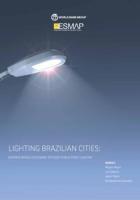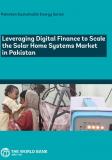Publications
Business Models for Energy Efficient Public Street Lighting
Cities are among the world´s largest consumers of electric energy, accountable for two-thirds of total electricity consumption and for over 70 percent of global greenhouse gases emissions. Public street lighting systems contribute significantly to a city´s energy consumption. In Brazil, the cost of energy for public lighting already represents the second most expensive item of most municipalities’ budgets, surpassed only by payroll expenditures.
Furthermore, new regulations require all the municipalities to own the city’s public lighting assets, making public lighting one of the few sectors in which local authorities have direct control over energy-consuming assets (contrasted with other high energy-consuming sectors such as transport). As a result, the local authorities will have every incentive to invest in and implement lighting projects by themselves. In Brazil, the current public street lighting inventory primarily consists of mercury and HPS lamps, which over time will tend to be replaced by more efficient technologies such as Light-Emitting Diodes (LEDs). This new technology is already in operation in some major cities in other countries. The availability and increasing spread of LED technology offers a unique opportunity for Brazilian cities to reduce their energy consumption. This is especially important and beneficial to cities, considering the sharp increase in energy prices in recent years.
In spite of the substantial benefits associated with the conversion of the installed public lighting network in Brazilian cities, major economic financial and institutional obstacles still need to be overcome. In order to reap the benefits of conversion to LED, it is necessary to design and implement business models that can enable the necessary investments. These business models must take into account the diversity of Brazil’s municipalities. Furthermore, consideration must be given to designing financial solutions that can raise private sector capital while mitigating municipal credit and project performance risks.
Meyer, Megan; Maurer, Luiz; Freire, Javier; De Gouvello, Christophe. 2017. Lighting Brazilian Cities: Business Models for Energy Efficient Public Street Lighting. World Bank, Washington, DC. © World Bank. License: CC BY 3.0 IGO. https://www.openknowledge.worldbank.org/handle/10986/29537


